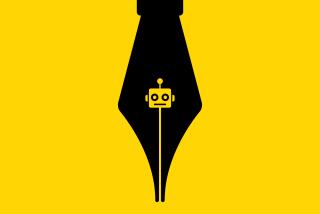Resume Needs Work if You Want to Get Hired
- Share via
NEW YORK — It may seem obvious, but if you want to land a job, don’t just drop a resume in a mail. Make sure it goes to the hiring manager with a letter-perfect, winning cover letter--and follow up with a telephone call.
Several companies said a significant minority, as many as one out of four, job applications do not come with cover letters.
“Hiring managers use cover letters to screen likely candidates from the unlikely,” said career consultant Robbie Miller Kaplan of Washington. “An enticing letter encourages them to review your resume,” but if it doesn’t tempt them “your resume may not get a glance.”
Kaplan gives her advice in her new “Sure-Hire Cover Letters,” published by Anacom. If the title seems to promise too much, the advice between the covers is strictly business.
A winning cover letter, according to Kaplan, should contain the following:
* A snappy introduction about why you’re writing.
* A brief section about your experience, education, training or other credentials to do the job.
* What you’ve done for your past employers: how you’ve built their sales, increased their membership rolls, whatever. And especially how you will do as much, and more, for them if they hire you.
* A summary restating your interest in the position and that you’re available to meet with them.
Once you’ve drafted the cover letter, rewrite! Edit! Make sure each sentence is clear. Check your grammar, spelling and overall accuracy.
“Any mistake, whether it concerns spelling, grammar, punctuation or your word choice can knock you out of the running,” Kaplan warned.
Don’t think that you can just mail it and forget it. The dedicated job-seeker keeps a record of every letter mailed, the date it went out and the contact’s name and telephone number.
“Always follow up a letter with a phone call after you allow the letter a day or two to travel through the office mail system,” Kaplan advised.
A letter that begins “Dear Sir/Madam” is a no-no. Direct it to a specific individual, she said.
If you don’t want the job, start the letter like this: “In the event that there may be a mutually beneficial position open, I have enclosed a copy of my resume.”
“Too vague,” the expert said. You must indicate up front which position interests you.
Don’t be wishy-washy: “I will appreciate the opportunity to discuss my qualifications at your convenience.” Or say “I can be reached at” a certain telephone number.
“You won’t get a phone call from an unsolicited letter. You need to call them,” Kaplan said.
This type of modesty does not sell: “The accompanying resume is submitted for your consideration, and I hope you will find it deserving of your attention.”
Kaplan calls this a “poor beginning” and explains, “Your letter should spark some interest, not introduce your resume.”
So she rewrites it as follows, “Do you believe that leading, motivating and training employees promotes enthusiasm, makes the workplace enjoyable and invigorates the bottom line? If so, we have a lot in common and should explore developing a relationship.”
More to Read
Inside the business of entertainment
The Wide Shot brings you news, analysis and insights on everything from streaming wars to production — and what it all means for the future.
You may occasionally receive promotional content from the Los Angeles Times.









